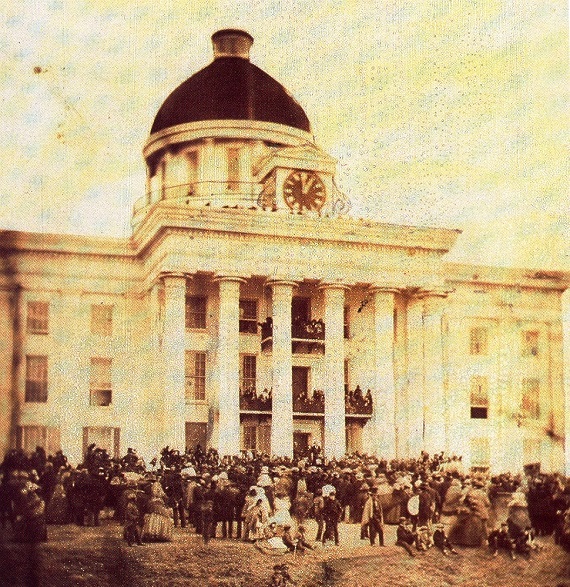“A Morsel of genuine History, a thing so rare as to be always valuable.”
—Thomas Jefferson
Recently a young professor wrote that Confederates had slandered and “dehumanised” Northern soldiers by giving them an unfavourable image. Dehumanisation. How awful and unfair! Those righteous Northern soldiers having their feelings hurt by mean old Southerners.
A relevant fact is that the Yankees had been “dehumanising” Southerners viciously for thirty years before the war. Emerson said that the inmates of the Boston jail were better people than Southern leaders. This type of thing was said thousands of times in speeches, sermons, and newspapers. Obviously they had dehumanised Southerners, else they could not have made vicious war on those who were supposedly their fellow Americans.
Thus evil Southerners are at fault for criticizing righteous Northern soldiers just because they had robbed and burned out their women and children. Young historians are industrious in picking out new Southern evils without context. It is a good career move.
I understand that in Pennsylvania they are changing memorials of the Gettysburg campaign from reference to two armies into charges about “invasion” of their country. These people seem unconscious of the fact that Lincoln had launched massive multiple invasions of the South by the largest armies ever assembled in the western hemisphere. And that these armies had made hard war against civilians from the beginning.
Lee moved his army to Pennsylvania in part to secure some relief to the people of occupied Virginia. He sought to face armed soldiers. His expedition was relatively free of civilian disturbance. But only evil Southerners can be guilty of “invasion.”
During the Civil War Centennial of the 1960s Robert Penn Warren wrote a little book The Legacy of the Civil War. He was addressing Americans of his own troubled time. He had strong admonitory advice for his fellow Southerners about their shortcomings. For Northerners he warned that the war had given them a Treasury of Virtue that was an unexamined assumption of righteousness.
Warren could easily have pointed out the phony nature of a treasury full of counterfeit paper, but his lessons were for the present. Americans had better watch out about thinking they were better than they are and assuming that their acts were always righteous. Unexamined righteousness if not a virtue at all, rather the opposite. And Yankee righteousness is peculiarly remote and free of personal responsibility.
Not long ago a well-known conservative columnist wrote that he admired Robert E. Lee. The comment caused a blizzard of angry mail: “Lee was in fact a traitor as was the Confederacy. Read the cornerstone speech of the Confederacy to see how it fully intended to be a permanent slave regime.”
Alas, such shallow pseudo-intellectual history is commonplace in today’s discourse. The much cited “cornerstone speech” was not “the speech of the Confederacy,” but the unofficial statement of one man. The U.S. already had “a permanent slave regime.” Lincoln said he did not know what to do about it and he certainly did not initiate war to free the slaves. Any one who takes a serious look at the times knows that Confederates did not declare a permanent slave regime. They only wanted to keep the important matter in their own hands. Has this fellow ever actually read any other document? Or even first-hand the one that he cites as conclusive proof? If so, he could not so simplistically regard the vast complicated conflict over self-government that was the war.
Mature and serious history, so lacking today about the war of 1861—1865, explores a context. It knows that there is more than one side to a question, and that all virtue is not on one side and all crime on the other. It seeks understanding rather than blame, with the knowledge that in a great conflict all were caught in a great tragedy. Something that most of the participants felt after the fact.







Abbeville Institute, thank you for sharing the beautiful mind of this great Southerner, Clyde Wilson.
The “Cornerstone” speech is the only statement by any vice-president in American history to which anyone seems to attach any importance.
Dr. Wilson can explain The War beautifully and clearly in a very few words while others fail to do this in several voumes.